Bestselling Advice For Women From 1774
 All images taken from the author's copy of A Father’s Legacy.
All images taken from the author's copy of A Father’s Legacy.
When Princeton mom and alumna Susan Patton published a heartfelt advice letterThe Daily Princetonian addressed to the daughters she never had, America went ballistic. The thrust of her counsel? A woman’s “future and happiness” is inextricably linked to the man she marries, and Princeton women better marry Princeton men, lest they graduate single and doom themselves to wandering, desperate and alone, in a world full of rakes and brutes.
Outraged readers blasted the letter as the antiquated rantings of a bitter Princeton divorcee. It turns out they were right, at least about the antiquated part. Go back a few hundred years and you’ll find Patton’s wisdom alive and well in the 1774 runaway bestseller A Father’s Legacy to his Daughters . The book’s author, Dr. John Gregory, was a prominent Scottish physician who eventually served as first physician in Scotland for King George III. Though Gregory published a number of books on philosophy and medical ethics, his most enduring legacy was a series of letters he intended only for his daughters.
Written in a declining state of health after the death of his wife, A Father’s Legacy collected all of Gregory’s wisdom on women’s well-being, to serve as a guide for his daughters when he was no longer alive. Upon Gregory’s death in 1773, however, his son James decided it would be a travesty to deprive the general public of father’s wisdom. (Did the daughters have any say, one wonders?) The book sold exceedingly well, despite being excoriated by Mary Wollstonecraft in A Vindication of the Rights of Woman, and clearly its influence continues to reverberate into the present day, nowhere more obviously than Patton’s letter.
Here is Patton, in 2013, on men’s attitude towards intelligence in their mates: “Men regularly marry women who are younger, less intelligent, less educated.”
And here is Dr. Gregory on the same topic: “If you happen to have any learning, keep it a profound secret, especially from the men; who generally look with a jealous and malignant eye on a woman of great parts and a cultivated understanding.”
Patton understands that Princeton men would never be so superficial, but such men are scarce outside of Princeton: “Of course, once you graduate, you will meet men who are your intellectual equal—just not that many of them.”
Dr. Gregory concurs: “A man of real genius and candor is far superior to this meanness. But such a one will seldom fall in your way…”
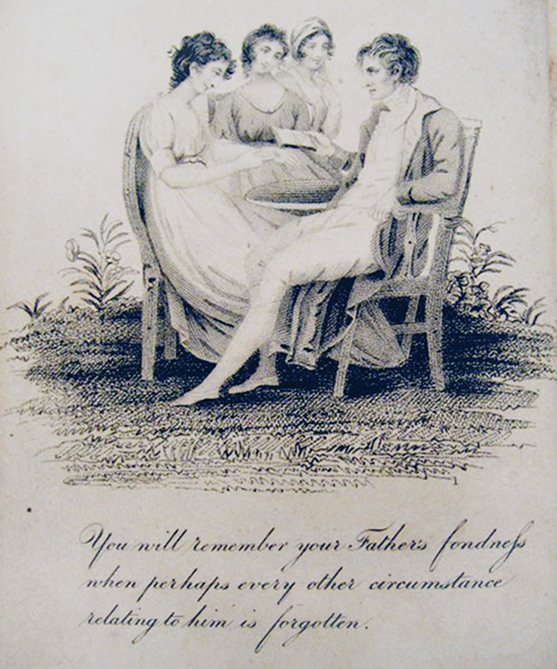
The formal constraints of an op-ed letter limit Patton’s advice to current Princeton women. No doubt she will rescue countless undergraduates from a life of miserable spouse-hunting—but what of those for whom it is too late? What of those who never found a Princeton man? On this important topic Patton is silent. Fortunately, Dr. Gregory understood that his daughters might never find men of real genius and candor, and so advises them, with bracing frankness, on how to secure and make do with less illustrious partners. Take note, imminent spinsters, that you may avoid a wretched fate! And fear not; like Patton (herself a woman!), the good doctor has nothing but respect for the fair sex:
“You will see, in a little treatise of mine just published, in what an honourable point of view I have considered your sex: not as domestic drudges, or the slaves of our pleasures, but as our companions and equals; as designed to soften our hearts and polish our manners; and, as Thomson finely says, To raise the virtues, animate the bliss, / And sweeten all the toils of human life.”
* * *
On Education
Novels will make your standards for men too high. Stick to history and science:
Shun, as you would do the most fatal poison, all that species of reading and conversation which warms the imagination, which engages and softens the heart, and raises the taste above the level of common life.
Smart people are generally ugly and sickly, so it’s actually best to stay away from scholarship entirely:
An attention to your health is a duty you owe to yourselves and to your friends. Bad health seldom fails to have an influence on the spirits and temper. The finest geniuses, the most delicate minds, have very frequently a correspondent delicacy of constitution, which they are too apt to neglect. Their luxury lies in reading and late hours, equal enemies to health and beauty.
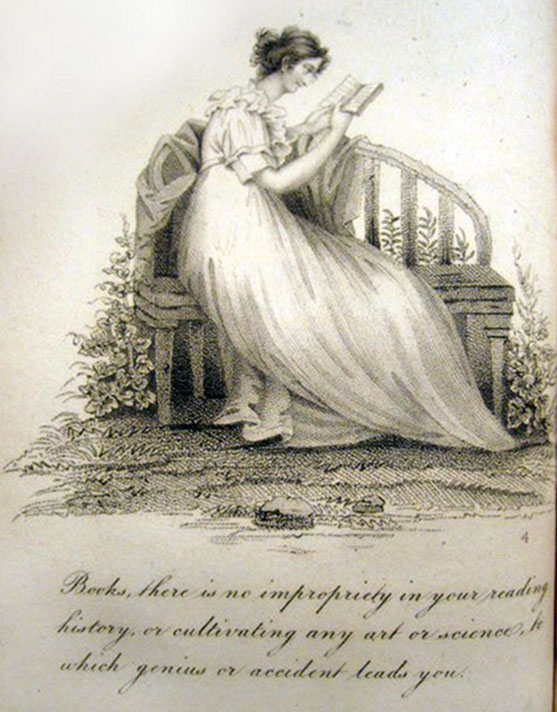
On Clothing
Obviously women like clothes—they’re ladies, after all! That’s fine. Use clothes to hide flaws, which are sure to be numerous:
Dress is an important article in female life. The love of dress is natural to you; and therefore it is proper and reasonable. Good sense will regulate your expense in it; and good taste will direct you to dress in such a way as to conceal any blemishes, and set off your beauties, if you have any, to the greatest advantage.
But don’t dress slutty:
A fine woman shows her charms to most advantage, when she seems most to conceal them. The finest bosom in nature is not so fine as what imagination forms.
On Flirting
Men don’t like manly women:
We naturally associate the idea of female softness and delicacy with a correspondent delicacy of constitution, so that when a woman speaks of her great strength, her extraordinary appetite, her ability to bear excessive fatigue, we recoil at the description in a way she is little aware of.
Play hard to get:
People never value much what is entirely in their power. This ambiguity of behavior, this art of keeping one in suspense, is the great secret of coquetry in both sexes.
Unless the man is playing hard to get:
There is a case where a woman may coquet justifiably to the utmost verge which her conscience will allow. It is where a gentleman purposely declines to make his addresses, till such time as he thinks himself perfectly sure of her consent. This at bottom is intended to force a woman to give up the undoubted privilege of her sex,—the privilege of refusing; it is intended to force her to explain herself, in effect, before the gentleman deigns to do it; and by this means, to oblige her to violate the modesty and delicacy of her sex, and to invert the clearest order of nature.
On Hobbies
Music and drawing are nice, but knitting is probably the best thing to do:
The intention of your being taught needle-work, knitting, and such like […] is to enable you to fill up, in a tolerably agreeable way, some of the many solitary hours you must necessarily pass at home.
Gambling is probably the worst:
I need say little about gaming; the ladies in this country being as yet almost strangers to it. It is a ruinous and incurable vice; and, as it leads to all the selfish and turbulent passions, is peculiarly odious in your sex.
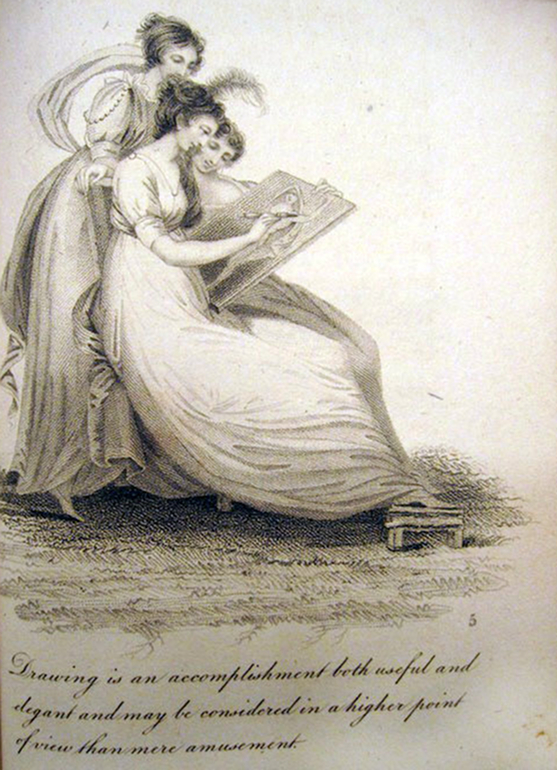
On Religion
Your life will be terrible. Religion can help:
There are many circumstances in your situation that peculiarly require the supports of religion to enable you to act in them with spirit and propriety. Your whole life is often a life of suffering. You cannot plunge into business, or dissipate yourselves in pleasure and riot, as men too often do, when under the pressure of misfortunes. You must bear your sorrows in silence, unknown and unpitied. You must often put on a face of serenity and cheerfulness, when your hearts are torn with anguish, or sinking in despair. Then your only resource is in the consolations of religion.
It may seem cool to hate on religion. Don’t. All men like religious women, even atheists, because they like virgins:
Women are greatly deceived, when they think they recommend themselves to our sex by their indifference about religion. Even those men who are themselves unbelievers, dislike infidelity in you. Every man who knows human nature, connects a religious taste in your sex with softness and sensibility of heart; at least, we always consider the want of it as a proof of that hard and masculine spirit, which, of all your faults, we dislike the most. Besides, men consider your religion as one of their principal securities for that female virtue in which they are most interested.
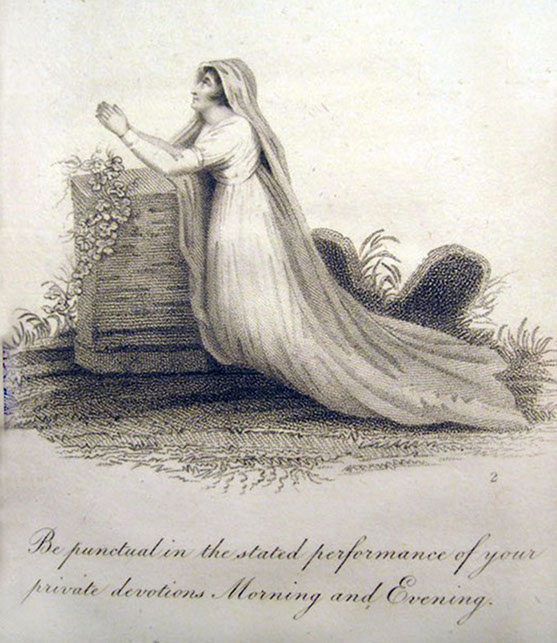
* * *
When Patton defended her letter during an on-campus talk, she encouraged women students to be religious, criticized feminists like Mary Wollstonecraft, and made an impassioned plea: “We need a new post-feminist manifesto that enables women and empowers women to want all that they want for themselves.”
Rest easy, Susan Patton. That need has already been met.

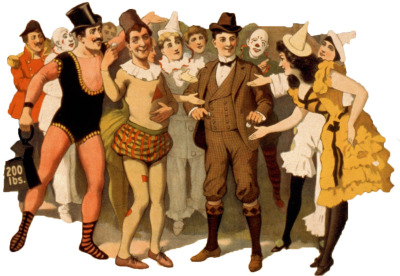
 Tuesday, May 14, 2013
Tuesday, May 14, 2013